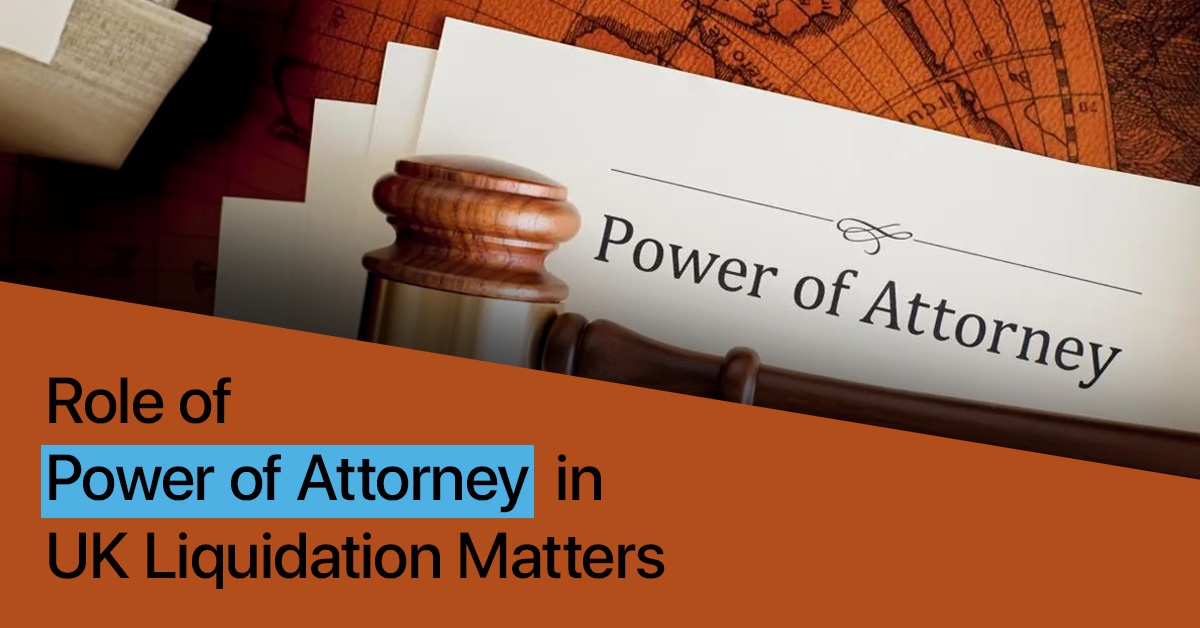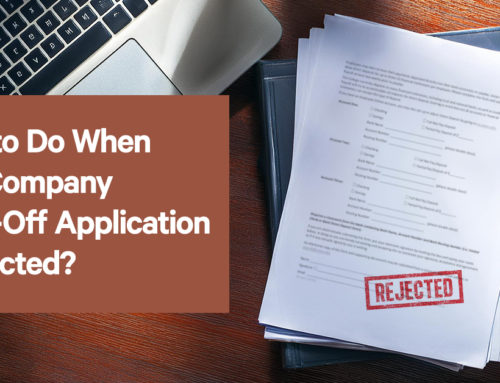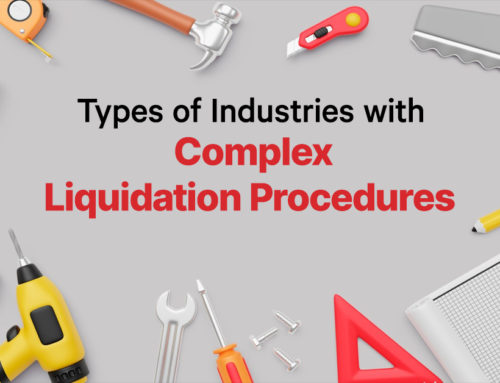When a company faces insolvency, going through the liquidation process can be daunting. The role of a Power of Attorney is essential in these circumstances. Understanding how a Power of Attorney in UK liquidation matters can massively enhance the efficiency and effectiveness of the entire liquidation. Proper use of a Power of Attorney means that all legal and financial responsibilities are managed properly, smoothing out potential challenges. This blog delves into the key aspects of Power of Attorney and its significance in the liquidation proceedings.
What is a Power of Attorney?
A Power of Attorney is a legal document that allows one person (the ‘Principal’) to appoint another person (the ‘Attorney’) to act on their behalf. This arrangement is often used in various legal and financial matters to ensure decisions and actions can be undertaken even if the Principal cannot manage them personally.
In the context of UK liquidation, a Power of Attorney can be particularly useful when a company’s directors or shareholders need to delegate their decision-making authority or manage their responsibilities effectively during the liquidation process.
The importance of Power of Attorney in UK liquidation
When going through any liquidation, several important functions must be managed effectively to achieve a successful outcome. Here’s how a Power of Attorney plays a key role in these aspects:
-
Facilitating decision-making
During liquidation, decisions must be made quickly and efficiently to ensure the best possible outcome for creditors and stakeholders. A Power of Attorney in UK liquidation allows appointed individuals to make important decisions on behalf of the company’s directors or shareholders who may be incapacitated, unavailable, or otherwise unable to perform their duties. This provides continuity and means that all legal and financial obligations are met throughout the liquidation process.
-
Streamlining the liquidation process
Liquidation involves numerous administrative tasks, such as handling company assets, dealing with creditors, and filing necessary documentation. By granting a Power of Attorney, the company can streamline these processes. The appointed attorney can manage these responsibilities efficiently, ensuring the liquidation process adheres to legal requirements and progresses smoothly.
-
Staying compliant with legal obligations
A range of legal requirements and regulations governs the liquidation process. A Power of Attorney can help make sure that these obligations are met by allowing the appointed individual to act on behalf of the company’s directors or shareholders. This includes filing necessary documents, attending meetings, and responding to any queries from creditors or regulatory bodies.
Types of Power of Attorney relevant to liquidation
Understanding the different types of Power of Attorney is essential for effective management during liquidation. Each type serves a distinct purpose and can be leveraged to address various aspects of the liquidation process:
-
General Power of Attorney
A General Power of Attorney grants broad authority to the appointed individual, allowing them to perform a wide range of actions on behalf of the Principal. In liquidation matters this type of Power of Attorney can be useful for handling various aspects of the liquidation process, including asset management and creditor negotiations.
-
Specific Power of Attorney
A Specific Power of Attorney is limited to particular actions or decisions. In the context of liquidation, this might involve authorising an attorney to handle specific tasks, such as dealing with a particular asset or managing a specific creditor’s claim. This type of Power of Attorney allows for targeted delegation of responsibilities.
-
Enduring Power of Attorney
An Enduring Power of Attorney continues to be effective even if the Principal becomes mentally incapacitated. This type of Power of Attorney is especially relevant in liquidation matters where the Principal’s decision-making capacity may be impaired. It means the liquidation process can proceed without interruption, even if the Principal can no longer manage their affairs.
How to grant a Power of Attorney
Establishing a Power of Attorney involves several important steps to ensure it’s effective and legal. Here’s what needs to be considered:
-
Drafting the document
To grant a Power of Attorney, a formal document must be drafted and signed by the Principal. This document should clearly outline the scope of authority being granted and the specific powers the Attorney will have. It is advisable to seek legal advice to make sure the document meets all legal requirements and accurately reflects the Principal’s intentions.
-
Registration
In some cases, especially with Enduring Powers of Attorney, registration with the Office of the Public Guardian (OPG) may be required. This process means that the Power of Attorney is legally recognised and can be acted upon when necessary.
-
Revocation
A Power of Attorney can be revoked at any time by the Principal, provided they can do so. It is important to formally notify all relevant parties if a Power of Attorney is revoked to prevent any confusion or misuse of authority.
Practical considerations
Selecting an appropriate individual to act as an Attorney and managing the process with clear communication are key components of using a Power of Attorney in liquidation matters. Here’s what you need to focus on:
-
Choosing the right attorney
Selecting the right individual to act as Attorney is important. The appointed person should be trustworthy, reliable, and capable of handling the responsibilities associated with the liquidation process. It is also important to make sure they’re aware of their duties and obligations.
-
Communication and documentation
Clear communication and thorough documentation are essential when using a Power of Attorney in liquidation matters. All actions taken by the Attorney should be documented and reported for transparency and accountability throughout the process.
The key role of Power of Attorney in liquidation
The Power of Attorney plays an important role in UK liquidation matters, facilitating decision-making, streamlining processes, and ensuring that all legal obligations are met. By understanding and effectively utilising a Power of Attorney, companies can manage liquidation more efficiently. This proactive approach helps in minimising delays, reducing errors, and ultimately achieving a more favourable outcome for all stakeholders involved, from creditors to shareholders.
Get in touch
If you need help with Power of Attorney in UK liquidation matters or have any questions about the process, our team is here to help. Call us on 0800 246 1845 or email us at mail@leading.uk.com for expert guidance and support tailored to your specific needs.






